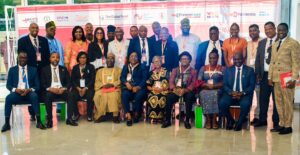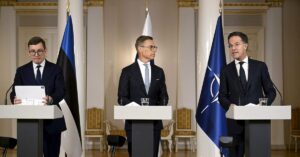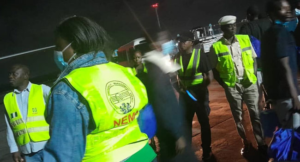As part of measures to ensure credible and ethical coverage of the forthcoming 2019 general elections, politics editors of major national newspapers at the weekend adopted a charter on election coverage.
The charter was adopted at the end of a two-day training organised for the editors by Daria Media and Thompson Foundation, with support by the Nigeria Guild of Editors (NGE).
The training provided opportunity for political editors to come together to discuss the potential approaches to the challenges of election reporting with focus on balance, objectivity and impartiality of election reporting. The focus on ethical solutions to problems of covering elections in Nigeria culminated in the creation of a voluntary charter of election coverage and guidance on best practices to help ensure adherence to the rules and to win back public trust.
The training also created an opportunity to explore the range of options designed to assist in online news gathering and social media, avoiding traps, verification and improving coverage. At the end of the workshop, the political editors freely adopted an election charter for journalists in Nigeria, which sets the threshold of fundamental values by which the media can be judged.
Among the highlights of the charter include the need to balance freedom of expression and the media’s right to be partisan and the equal rights of electors to expect openness, honesty and fairdealing in the reporting of elections.
It also includes the need to uphold standards of accuracy, professional integrity and due sensitivity that embrace the best values both of Nigerian’s cultural heritage and ethnic diversity and of modern international society. It also safeguards journalism in the genuine public interest and the freedom to editorialise: to challenge, stimulate, campaign, and criticise.
The charter further states that it is essential that a voluntary code is honoured not only to the letter but also in full spirit. It should neither be interpreted so narrowly as to compromise its commitment to respect individual rights nor so broadly as to prevent publication in the public interest.
The code, according to the charter should be strictly observed by all participating publishers, editors and their reporters as well as contributors. The charter also encompasses the need for accurate reporting, including fact-checking and the avoidance of fake news; need to correct materially incorrect reports at the first opportunity and with due prominence.
Ms Bimbola Amao of Daria Media, who spoke on the essence of the training, said her organization was driven to host the workshop so as to fill a need. According to her, “the workshop became quite necessary because ethical election reporting has become critically important as journalists get pulled into enforcing our fault line in not only in Nigeria but globally. “We believe that the press has a major role to play in promoting democracy and civic participation in governance.
This can be achieved through accuracy, fairness and balance in their reporting especially during delicate times such as the election period.” She expressed optimism that the measurable improvement that follows the adoption of the voluntary charter will serve as an impetus for the adoption of a unified voluntary charter on ethical journalism in Nigeria.






